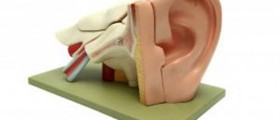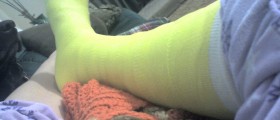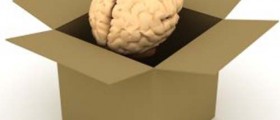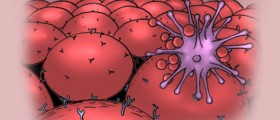
Labyrinthitis is the term that refers to inflammation of the inner ear, to be more precise inflammation of the labyrinth. This medical condition typically leads to problems with balance and various degrees of hearing loss. It can affect one ear or occurs bilaterally. Local infections are usually of bacterial or viral origin. The condition may, however, be associated with some systemic infections. Autoimmune processes as well as vascular dementia are also potential triggers of labyrinthitis.
Labyrinthitis Pathophysiology
In order for all the health issue associated with labyrinthitis to be understood, it is important to comprehend the relationship among the labyrinth, middle ear, mastoid and subarachnoid space.
The labyrinth is a structure of the inner ear containing a network of peripheral sensory organs necessary for maintaining balance and hearing. These organs are the utricle, saccule, cochlea and semicircular canals. The labyrinth is located inside the temporal bone, is close to mastoid cavity and is with the oval and round windows separated from the middle ear. Via the internal auditory canal and cochlear aqueduct, the labyrinth stays in contact with the central nervous system. So, infective agents responsible for labyrinthitis may reach this structure through any of the mentioned pathways. It is also possible to develop infection if there are congenital or acquired defects in the bony labyrinth or if microorganisms reach the organ via blood (hematogenous dissemination).
Labyrinthitis Treatment Options
All patients suffering from labyrinthitis are initially advised to stay in bed and have plenty of rest. They also need to be well-hydrated. Mild cases are treated at home while progression of symptoms as well as the onset of more complex neurological symptoms such as double vision, slurred speech, gait disturbances, localized weakness or numbness etc. require hospitalization.
If one has to deal with severe nausea and vomiting, he/she will be administered fluids intravenously. Such patients also benefit from antiemetic medications. Additionally, administered drugs include diazepam, corticosteroids etc. If the underlying cause is some virus, there is also chance the person will receive some antiviral drugs. Bacterial labyrinthitis is treated with potent antibiotics and according to antibiogram. Finally, there are two adjuvant treatments for people suffering from labyrinthitis called antioxidant therapy and cochlear microperfusion.
Under certain circumstances, if labyrinthitis develops as a result of otitis media, doctors perform myringotomy i.e. create an artificial hole in the tympanic membrane (eardrum) which allows the content from the middle ear to drain. Surgical drainage and debridement are treatments for mastoiditis and cholesteatoma - associated labyrinthitis. Finally, patients with suppurative intracranial complications require consultation with a neurosurgeon while infectious disease specialists are consulted if there is a systemic infection.






_f_280x120.jpg)










Your thoughts on this
Loading...